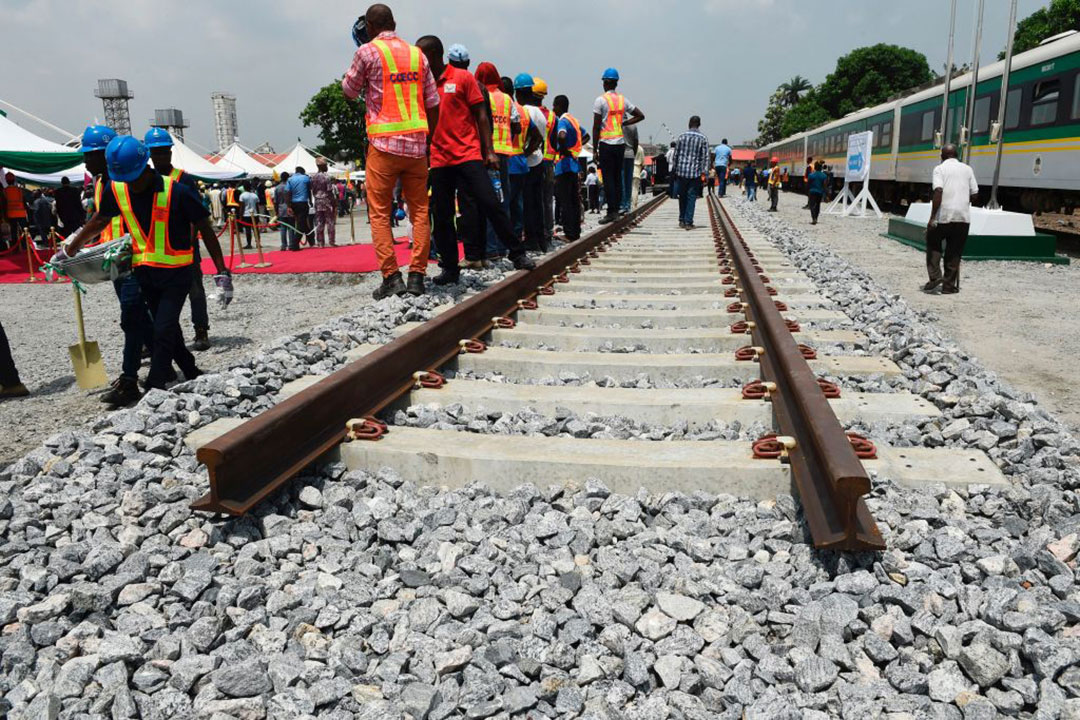Sovereignty at Stake? Nigeria’s House Probes Chinese Loans
ADF STAFF
Fireworks erupted at a recent Nigerian National Assembly meeting.
The explosive subject? A probe of loans from China since 2000 and whether Nigeria’s sovereignty could be at stake if it were to default.
China has long been accused of using “debt-trap diplomacy,” in which it saddles a developing country with a high debt burden only to extract concessions later on. The issue has taken on far greater urgency and caused widespread economic anxiety in Nigeria, the continent’s largest economy, because of the dual tolls of the COVID-19 pandemic and plunging oil prices.
Nigeria’s 2020 budget revision sparked a public outcry over debt because servicing of loans will consume about 27% of allocated funds. The country expects a 40% decline in oil revenue due to declining global demand. Oil production constitutes about 70% of Nigeria’s income.
China is the largest foreign debt holder in Nigeria with about $3.1 billion, or 11.28% of its total external debt, according to the nation’s Debt Management Office.
The House of Representatives ordered an investigation into Chinese loans in May, putting many ministry officials under intense scrutiny.
Tempers flared on August 17 as House members grilled Minister of Transportation Chibuike Rotimi Amaechi over billions of dollars in loans from China’s state-owned Export-Import Bank.
Amaechi, according to The Premium Times, told the committee to “look the other way” or risk losing Chinese loans for many infrastructure projects. That perceived threat to halt the probe sparked outrage that spilled into multiple Assembly meetings.
Prominent Nigerian economist Kinglsey Moghalu decried the exclusion of public debate and urged transparency.
“There is no competitive bidding for the projects financed by China loans,” he said on Twitter. “The projects such as railways and airport terminals are awarded to Chinese firms, the supplies are from China, labor is from China.
“This is a rip-off. This is not a loan. It is much more. Nigeria is subsidizing China’s export strategy as financed by that country’s Export-Import Bank.”
The lack of transparency in Chinese loans was underscored when The Sun newspaper reported that a $500 million contract from 2018 to finance a rail project was written in Mandarin. English is the official language of Nigeria, particularly for purposes of business.
As details of that contract came to light, one clause triggered particular concern among elected officials, the media and the public. It stated that “the borrower hereby irrevocably waives any immunity on the grounds of a sovereign or otherwise for itself or its property in connection with any arbitration …”.
One lawmaker blasted Amaechi for allowing Chinese-controlled Hong Kong to be designated the arbitration center in the loans.
Amaechi deflected blame to Nigeria’s previous administration.
“These are standard clauses you have before you can get the loan,” he said, according to Vanguard newspaper. “Eighty percent of these loans were taken before we came.”
Ossai Nicholas Ossai, chairman of the House committee conducting the probe, vociferously rejected Amaechi’s claims, calling the immunity clauses ambiguous and obscure.
“It’s a common practice that most international loan agreements would adopt a ‘sovereign guarantee’ and a neutral international arbitration center as opposed to waiving of our national sovereignty in an omnibus manner,” he said, as Vanguard reported. “Especially in dealing with countries like China, known to possess an absolute state status on their institutions and corporations.”
In an interview with Channels Television, Dr. Bongo Adi, director of the Centre for Infrastructure Policy Regulation and Advancement at Lagos Business School, expressed concern over Nigeria’s increasing reliance on Chinese loans.
“Out of 64 countries that host the Chinese Belt and Road Initiative projects, 20 have gone under distress, and eight are about to lose their sovereign debt sustainability if they should take any further loans,” he said. “We have seen this Chinese cycle and need to be careful.
“What normally happens is that the Chinese will begin to take over infrastructure assets,” Adi said. “Chinese strategically tie loans to infrastructure, and that is with the intention of taking possession of the infrastructure asset if there is a default, as such assets become their collateral.”


Comments are closed.